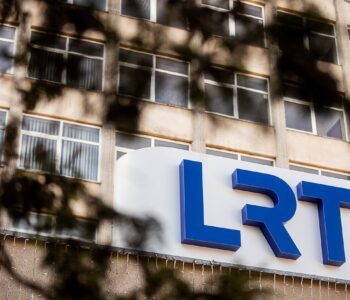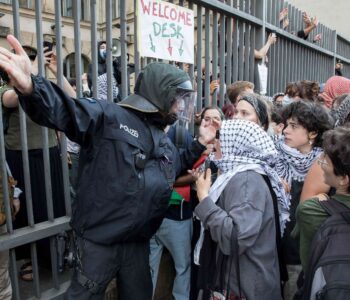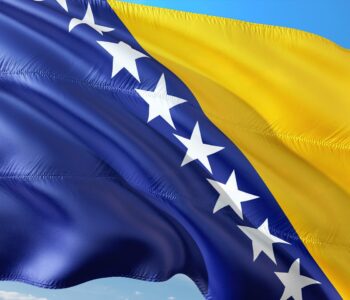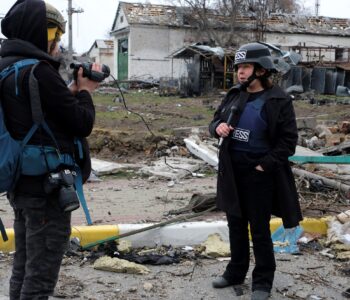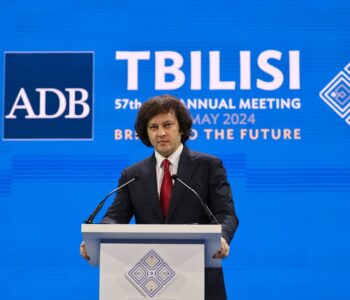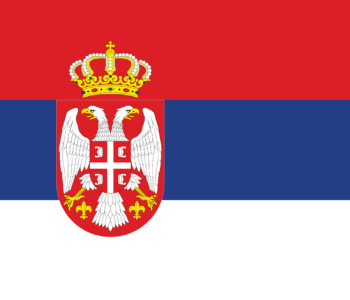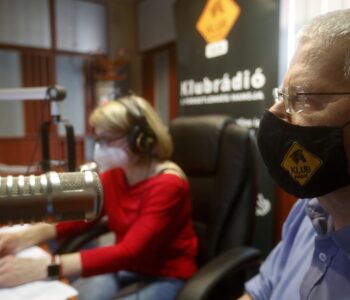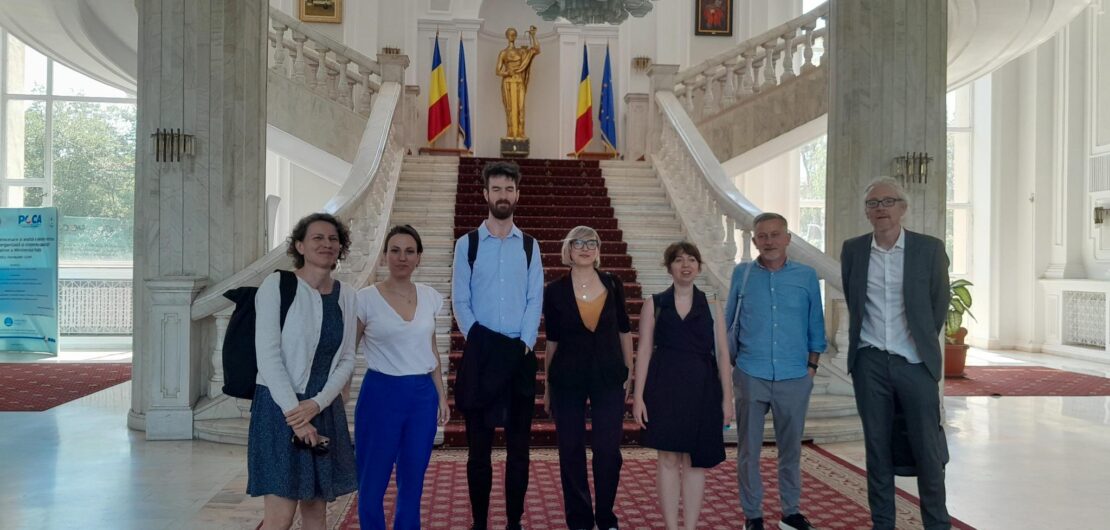 Library
Library
Media Freedom Mission to Romania questions fairness of electoral…
Media Freedom Mission to Romania questions fairness of electoral coverage
Urgent reform of political funding for ‘press and propaganda’ needed to end media dependency on political parties
Members of the Media Freedom Rapid Response (MFRR), after completing a mission to Bucharest, concluded that much of the media coverage of Romania’s electoral campaigns is seriously compromised by political capture and that media are failing to provide the fair and balanced political reporting necessary for the public to make informed electoral choices.
The MFRR’s two-day mission to Romania, 17-18 June, was held just one week after the European and local elections had been held. With presidential elections due in September and parliamentary elections in December this year, the MFRR calls for an urgent reform of the system of party funding to remove political money from the media system.
Any political expenditure that does exist must be restricted to clearly marked political advertising, with full disclosure of the budgets spent by each political party for each media. The overall level of state subsidies used for ‘press and propaganda’ must also be reduced.
The provision of annual state funding to political parties which are then used to pay media for ‘press and propaganda’ content is, currently, the biggest instrument of political capture of the Romanian media. The huge income it provides for media distorts political reporting creating an unfair electoral playing field. The sums used have risen rapidly in recent years with approximately 24 million euros in 2023 and with this set to rise significantly in 2024.
The problem is exacerbated by a lack of transparency over which parties fund which media, how much they fund and for what media content. Political parties are required to report their expenditure to the Permanent Electoral Authority on a monthly basis. While the PEA issued more detailed reports during the 2024 local and European campaign periods, which makes more transparent how much is spent in which media by which party, outside of the official campaign none of this detail is made public.
The mission’s key findings
Political Influence and Media Coverage:
- The pervasive influence of political party funds on media results in biassed coverage primarily in favour of the governing coalition.
- The political funding creates a pliant media that fails to hold government to account and undermines public trust in media.
- The lack of transparency over the distribution of state advertising funds controlled by elected officials, further exacerbates the capture of media, particularly at the regional and local level.
- The lack of transparency over other sources of funding, business ties and other conflicts of interests between media and politicians also compromise the capacity of media to serve the public.
Vexatious SLAPP Lawsuits:
- Romanian media are targeted with an alarming number of Strategic Lawsuits Against Public Participation (SLAPPs) aimed at silencing investigative journalism and critical reporting. These lawsuits, often initiated by powerful political figures and business interests, rarely win in court, but instead succeed in intimidating and financially draining media outlets.
Safety:
- Online harassment and threats directed at journalists – particularly women journalists – create a growing climate of hostility designed to silence journalists. The authorities must do more to address this problem and protect journalists, particularly from online trolling and smear campaigns.
For the full mission set of findings and recommendations, see annex below.
The mission called for the government to swiftly implement new Europe-wide rules designed to improve media freedom including the European Media Freedom Act, the Anti-SLAPP Directive and the Regulation on the Transparency of Political Advertising as well as the European Commission’s recommendations on the safety of journalists. The EMFA, in particular, introduces new rules on transparency of ownership, conflicts of interest and the receipt and distribution of state advertising to media.
The mission welcomed commitments by the Ministry of Justice and the General Prosecutor to support training programmes for judges, prosecutors and policemen on SLAPPs, protection of sources and the safety of journalists.
The mission welcomed the High Court’s decision to instruct the re-opening of the investigation into possible political interference in the investigation into the smear campaign against investigative journalist, Emilia Sercan. The mission also welcomed the General Prosecutor’s assurances that Sercan’s case will be overseen by a highly competent and fully independent prosecutor with the resources to resolve the case before the end of the statute of limitations.
The mission also called for closer co-operation between the broadcast regulator (CNA) and the Permanent Electoral Authority (PEA) in verifying the expenditure of political funds in media to ensure its use does not breach either the electoral or broadcast law.
Finally the mission called on the parliamentary committees for mass media to conduct a public inquiry into the role of political funds and its impact on media independence and electoral fairness.
The mission confirmed findings set out by MFRR partners in their April report, Media freedom in Romania Ahead of Super Election Year.
The mission held meetings with Iulian Bulai, Chair of the Parliamentary Committee for Culture, Arts and Mass Information Means of the Chamber of Deputies; Alex Florin Florența, General Prosecutor; Mihai Pașca, Secretary of State for the Ministry of Justice; the Romanian Institute for Human Rights (IRDO); Dan Santa, Director of International Relations at Radio Romania; Constantin Rada, General Director at the Permanent Electoral Authority; Valentin Alexandru Jucan, Vice President of the National Audiovisual Council (CNA) and Mircea Toma, member of CNA and Council of Europe focal point for the safety of Journalists in Romania; and Renate Weber, Ombudsperson. The mission further met with leading journalists and media freedom groups, in a debate hosted by the Centre for Independent Journalism.
The mission was led by the International Press Institute and included the Osservatorio Balcani e Caucaso Transeuropa (OBCT), European Centre for Press and Media Freedom, Free Press Unlimited and the Romanian media freedom organisation, ActiveWatch.
The MFRR is particularly thankful for the support of the Centre for Independent Journalism and of ActiveWatch in organizing the mission.
Annex
Key Findings
Media Capture and Electoral Coverage
- Romanian elections are compromised by the political capture of mainstream media, primarily through the use of political party funds expenditure on ‘press and propaganda’.
- The main political parties spent in 2023 over 24 million euros on press and propaganda funds and this figure is set to rise significantly in 2024.
- While the election campaign rules provide for detailed reports of all political party expenditure, which were made more transparent by the Permanent Electoral Authority (PEA) during the June 2024 electoral campaigns, the detail of expenditure between campaigns is withheld.
- There is considerable evidence, unveiled by investigative journalists, of political funds being illegitimately used to buy media coverage between election periods, in breach of the legislation on financing the activity of political parties and electoral campaigns and broadcast laws.
- Public funds are being spent by political parties on media content which is not properly marked, making it often impossible for audiences to distinguish between journalistic and paid-for content.
-
- The lack of transparency over the distribution of state funds controlled by elected officials, means that this is also likely to further exacerbate the capture of media, particularly at the regional and local level.
- There is no obligation on either political candidates, or media, to make public any conflicts of interest such as candidates ownership, or influence over media, further compromising the fairness of electoral campaigns.
- This has resulted in a distortion of the electoral coverage as parts of the mainstream national and local media provide pliant coverage of the big political parties and hostile coverage of other political candidates.
- While the problem is particularly acute during elections, political money has become embedded in the media system creating an unhealthy interdependency between the media and political parties throughout the political cycle.
- The electoral and media regulators and political parties have a democratic duty to ensure full transparency over their use of public, and private, political funds spent on media.
- There is an equal obligation on the media companies to declare all sums received from political sources and to clearly label the content that has been paid for.
- The problem is further exacerbated by a public broadcaster which lacks the independence to be able to hold government to account and is in urgent need of reform.
Media Capture Recommendations
Romania must prioritise the fight against media capture including the following actions:
- The parliamentary committees for mass media, should organise a public inquiry into the impact of political money on media independence and electoral fairness.
- Closer co-operation between the broadcast regulator (CNA) and the Permanent Electoral Authority (PEA) in verifying the expenditure of political funds in media to ensure its use does not breach either the electoral or broadcast law. If necessary, the regulatory framework should be changed to guarantee the role of CNA in verifying the use of political funds.
- The obligations of the European Media Freedom Act should be swiftly implemented, particularly those related to media capture including independence of public service media, transparency of ownership and conflicts of interest, regulatory independence, guarantees of media pluralism and fair distribution of state advertising.
- The Regulation on Political Advertising should also be swiftly implemented to ensure fully transparent labelling of all political advertising in the media and online.
Legal Obstacles
Strategic Lawsuits Against Public Participation (SLAPPs)
- Romanian media are targeted with an alarming number of Strategic Lawsuits Against Public Participation (SLAPPs) aimed at silencing investigative journalism and critical reporting. These lawsuits, often initiated by powerful political figures and business interests, rarely win in court, but instead succeed in intimidating and financially draining media outlets.
Freedom of Information
- The Freedom of Information law is frequently ignored by Romanian authorities forcing media to appeal through the courts which can take several years to complete. By the time it is resolved the information is often no longer useful.
- The mission heard of cases where political parties prefer to pay the fine and damages issued by the courts rather than give up the information. At that point the courts declared the case to be resolved despite the ongoing breach of the law, as the public interest information had not been disclosed.
Protection of Sources
- Courts and the police have pressured journalists to reveal their sources against the provisions and case law of Article 10 of the European Court of Human Rights.
Legal Obstacles: Recommendations
- Journalists and media support groups must do more to document and raise awareness about the threats posed by SLAPPs to the media’s ability to hold the powerful to account.
- The government has an opportunity to reduce the threat of SLAPPs by ensuring that the European Union’s Anti-Slapp Directive is fully transposed into law and that the measures are extended to include domestic SLAPP cases as well as cross-border cases.
- The Freedom of Information law must be fully implemented with clear consequences for individuals or institutions that are found by courts to have deliberately withheld information in breach of the law.
- The rules and procedures for authorising surveillance of journalists must be updated to come into line with Article 4 of the European Media Freedom Act and of the ECHR which provide extensive safeguards against abuse of surveillance to target journalists.
- Training should be provided to prosecutors and judges on SLAPP cases and the protection of sources and the protections offered by the European Convention of Human Rights.
Safety and protection of journalists
- Online harassment and threats directed at journalists – particularly women journalists – create a growing climate of hostility designed to silence journalists. The authorities must do more to address this problem and protect journalists, particularly from online trolling and smear campaigns.
- The mission welcomed the High Court’s decision to instruct the re-opening of the investigation of possible political interference in the investigation into the smear campaign against investigative journalist, Emilia Sercan.
Recommendations on the safety and protection of journalists
- The General Prosecutor should organise a regular dialogue with journalists on how to reduce crimes against journalists. This should include trainings with the police and prosecutors on how to protect journalists from growing online and offline threats.
- The new Prosecutor to be appointed to Emilia Sercan’s case must be highly competent, fully independent and provided with the resources to resolve the case before the end of the statute of limitations.
Local Journalism
- Local journalists have seen a steep decline in professional standards, independence and public trust due in most part to the financial dependence – of the majority of local media to state and political advertising funds, enabling local politicians to buy the silence and loyalty of media. Furthermore, local journalists are far more vulnerable to vexatious lawsuits, threats and intimidation where political elites are able to apply influence on the judiciary, police and business communities with comparative ease.
Recommendations Local Journalism
- The local government advertising budgets must be depoliticised to end the political capture of local media and ensure the fair distribution of funds. The rules for distribution and transparency outlined in the EMFA should apply to all local governments regardless of size.
- Action should be taken to ensure the professional development of journalists, the promotion of sustainable business models, and the expansion of community audiences that help guarantee their independence and integrity.
This statement was coordinated by the Media Freedom Rapid Response (MFRR), a Europe-wide mechanism which tracks, monitors and responds to violations of press and media freedom in EU Member States and Candidate Countries.

